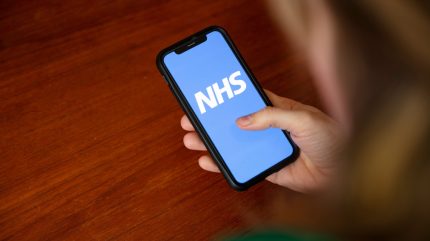
The UK’s National Health Service (NHS) has advanced its digital healthcare services, enabling millions of patients to register with a new general practitioner (GP) through the NHS App and online.
This initiative is part of a broader effort to make healthcare more convenient and liberate staff time.

Discover B2B Marketing That Performs
Combine business intelligence and editorial excellence to reach engaged professionals across 36 leading media platforms.
NHS England Primary Care and Community Services National Director Dr Amanda Doyle said: “With the online service, people can see what is available to them and complete registration in a few simple steps from any location.”
Almost all GP practices in England, amounting to 98.4%, are now facilitating online registrations through the app, NHS.uk, or their own websites.
In the past year, the number of practices offering this service has more than doubled, reaching over 6,150.
Since its inception in November 2022, the online system has been utilised by more than 3.8 million patients, with nearly 1.7 million registrations in the past six-month period.

US Tariffs are shifting - will you react or anticipate?
Don’t let policy changes catch you off guard. Stay proactive with real-time data and expert analysis.
By GlobalDataThe NHS has reported that this digital innovation has allowed patients to order approximately 4.6 million repeat prescriptions and access more than six million test results each month in the previous year, saving an estimated 2.6 million hours of practice time.
Health Minister Karin Smyth said: “As part of our Plan for Change, this government is transforming the NHS from analogue to digital, and getting it back on its feet, so that we have a healthcare system that’s fit for the future.”
The online registration process allows patients to register with a GP practice at any time with just a few clicks.
While the digital option is now readily available, patients still have the choice to collect a paper form from their local GP practice if they prefer.
The service has several patient-friendly features, such as a catchment area check and does not require ID, an NHS number, or proof of address.
Additionally, translation tools are integrated into the service to aid non-English speakers.
Last month, the NHS began the utilisation of domestically sourced plasma again for medicinal purposes.





